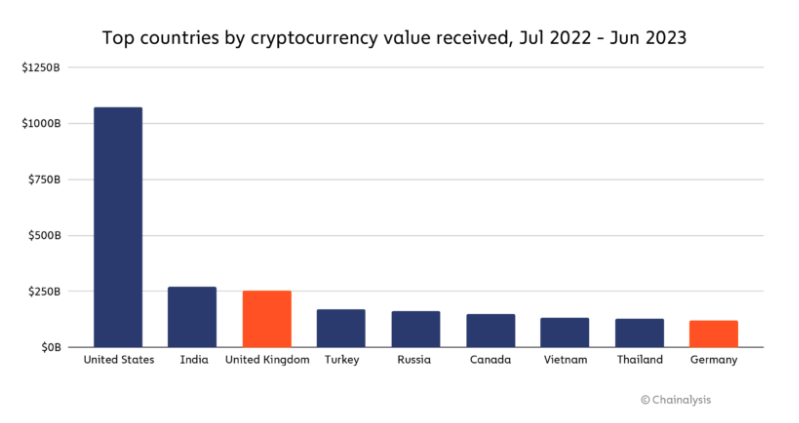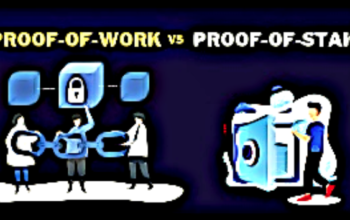 Central, Northern, and Western Europe (CNWE) have emerged as a cryptocurrency powerhouse, ranking second globally in terms of transaction volume, just behind North America. In the period from July 2022 to June 2023, CNWE contributed to 17.6% of the world’s crypto transactions, with an estimated $1 trillion in on-chain value.
Central, Northern, and Western Europe (CNWE) have emerged as a cryptocurrency powerhouse, ranking second globally in terms of transaction volume, just behind North America. In the period from July 2022 to June 2023, CNWE contributed to 17.6% of the world’s crypto transactions, with an estimated $1 trillion in on-chain value.
The region’s crypto adoption is being driven by decentralized finance (DeFi), which accounts for 54.8% of the cryptocurrency value received.
Institutional players in CNWE are now embracing DeFi, thanks to supportive regulatory frameworks for web3 initiatives. Interestingly, seven countries in the region, including Albania and Luxembourg, have witnessed increased inflows to decentralized exchanges, reflecting a growing interest in DeFi.
We have a double dose of Geography Report previews today! First is our section on Central, Northern & Western Europe, where we explore how new regulations have impacted regional adoption, with special focus on the UK, France, Germany, and Italy. https://t.co/R9guC9gMLv
— Chainalysis (@chainalysis) October 18, 2023
The United Kingdom, a crypto leader in CNWE, stands out as the third-largest in the world by raw transaction volume, attracting $252.1 billion in the past year. U.K. consumers are turning to crypto as an alternative investment, particularly in Bitcoin, Ethereum, XRP, Cardano, and Solana.

Regulatory developments, like the Financial Services and Markets Act 2023 (FSMA 2023), have mixed reactions but indicate the U.K.’s commitment to blockchain technology. The act has already influenced institutional behavior, shifting transaction patterns toward Bitcoin and Ether.

In June 2023, the European Union introduced the Markets in Crypto-Assets (MiCA) Regulation, offering a unified approach to crypto regulation. MiCA has spurred crypto innovation, as seen in France, where a supportive regulatory environment has fostered a thriving crypto hub. Italy’s FinTech Milano Hub and Germany’s technical expertise are also driving crypto growth in the region.
The crypto future in CNWE holds great promise, with innovation in smart contracts, NFTs, and DeFi on the horizon. As the industry evolves, regulations like MiCA will continue to shape its direction, with the potential for amendments to harmonize the regulatory framework across European countries.



